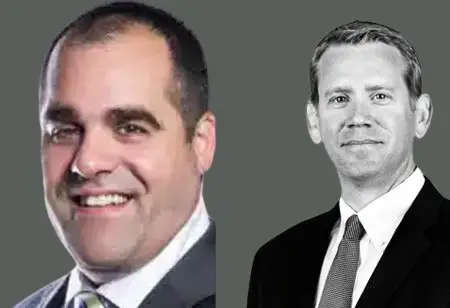Thank you for Subscribing to Construction Business Review Weekly Brief

Walking the sustainability walk: The case for EPR
A number of experiences this year have had me thinkingabout how businesses that produce goods need to be thinking about those goods’ next lives, or circularity.
At GreenBiz23, an annual event for sustainable business leaders, I joined other sustainability leaders in in discussion on circularity, the idea that everything that gets created should have a second life, and a third, and so on. Not long after that, I was lucky enough to be on a recycling panel at the Association of Plastics Recycling’s annual conference.
Our team has also been talking about how sustainability in manufacturing influences our business practices, as we begin construction on a new engineering center, which will be, we believe, the world’s most advanced stormwater engineering, research and development facility focused on product engineering, materials science and manufacturing technologies.
On both my panels and in our discussions about creating more sustainable products, a few key themes emerged:
1. We need to increase access to and awareness of recycling. That includes educating consumers about what can and cannot be recycled and increasing the amount of “used” material available to be recycled. The need is there; the system is not keeping up.
2. We need to recover more recyclable materials from the waste stream and ensure that material is as clean as possible and kept with like material, rather than mixed. Mixing dilutes the effectiveness of recycled material, adds cost and reduces the likelihood it will be used. That is the opposite of what we want.
3. We all — producers who use virgin materials, companies who want more recycled materials, recycling companies, researchers, policy makers, etc. — need to work together to make recycling successful. There is no singular silver bullet.
It is no secret among my network and peer group that I believe strongly that all business leaders need to do a better job of thinking about the second and third acts of their products and packaging, and it has been fascinating to be around other sustainability nerds, talking about recycling and how businesses and policies are succeeding or struggling in reaching our individual and collective sustainability goals.
My panel at GreenBiz included a breakout session led by a team made up of a fiber recycler, an electronic waste (e-waste) recycler, a composter, and myself, a representative from the plastics recycling world. These are wildly different materials that are recycled in wildly different ways using significantly different technologies. And yet, I was amazed at the similarities between us.
For each and every one of our businesses, the limited access our country offers to recycling programs creates significant supply issues. Put another way: All our businesses want more recyclable or compostable material. And all of us are unable to get it, not because people don’t want to recycle — poll after poll proves they do. But people either don’t have easy access to recycling services in their communities or don’t know where in their communities to go to recycle. And, even if access to recycling exists, in many cases, people don’t know what can or cannot be recycled.
My co-panelist, the e-waste recycler, asked our audience how many of them had electronic devices in their homes that they weren’t using and that should be recycled. In an audience of 250 people, every hand was raised.
One thing I know: The more people who can access recycling programs around the world, the better off our planet will be. That is a win not just for sustainably minded businesses, but for everyone.
Another panelist asked if pizza boxes can be recycled. The results were decidedly mixed. About 50% of the hands were up. The answer is YES, pizza boxes can be recycled, the research has been done and the contamination is low. The issue is that not all MRF’s (Material Recovery Facilities) accept used pizza boxes. Even they don’t know whether or not they should be accepted.
These were people who had committed multiple days, including travel time, to attend a conference on sustainability in business. They are committed to recycling. And yet, they were not doing it or they are confused.
Why?
I believe it is a combination of access to recycling and education. But I think there is a third piece, too, one discussed extensively at GreenBiz and one that I would like to see more companies embracing. That is the policy concept of extended producer responsibility, or EPR.
EPR is a policy tool that governments use to build the total cost of a product into its price. The idea is that doing so creates incentives for companies that make products out of virgin materials — say, plastics — and influence how those products are initially designed and made and what happens to them at the end of their life. That means that manufacturers need to proactively consider how their products can be reused or recycled after their first life.
Full disclosure: Here at ADS, we are fans of sensible EPR. We think it will boost both access to and education about recycling, which is a win for us. And of course, more recycled products are good for our business goals. We have set a target to recycle a billion pounds of plastic a year by 2032. Last year, we recycled more than 600 million pounds, but we could have recycled more had we been able to purchase the old shampoo bottles, detergent jugs and other high-density polyurethane (HDPE) and polypropylene (PP) cups, tubs and lids we needed from recycling centers around the U.S.
But more than our business objectives, there is a case to be made for internalizing costs that have, for too long, been borne externally by the environment and the consumer. EPR is one attempt to address that.
Four states — California, Colorado, Maine and Oregon — have enacted EPR policies around packaging, and while it is still too early to know how successful those policies have been in removing recyclables from the waste stream, early projections are promising.
One thing I know: The more people who can access recycling programs around the world, the better off our planet will be. That is a win not just for sustainably minded businesses, but for everyone.







